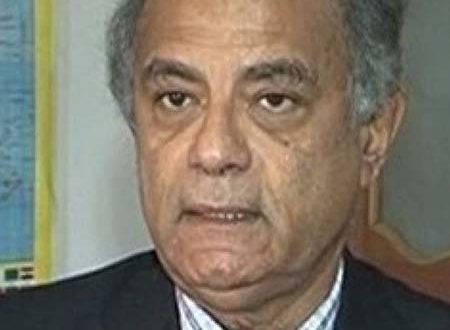The Trump administration is not only upturning long-held baselines on the Middle East peace process but challenging the foundations of 20th century international peace and security
Hussein Haridy
On 20 January, three years will have passed since the moment US President Donald Trump was sworn in as the 45th American president.
Early on, his administration announced that it would reveal “the ultimate deal” to bring peace between the Palestinians and the Israelis. Back then, the official idea was to announce this plan before year’s end.
Arabs were excited to the extent that a very prominent Arab senior official told President Trump that he would be the only one capable of elaborating the “Deal of the Century”.
After the lapse of almost three years, the international community is still waiting for the “Deal of the Century”. Last week, US Secretary of State Mike Pompeo, told the press at the State Department that the Trump administration would reveal the plan when the “time is ripe”.
On that day, Monday, 18 November, Pompeo dropped a bombshell, which is not unusual for the Trump administration, especially when it comes to the Middle East and the Palestinian and Arab questions.
He said that the United States will not consider Israeli settlements in the occupied West Bank as illegal under international law. He further added, surprisingly enough, that this decision helps “strengthen the position of the United States” ahead of the expected release of the long-promised Mideast peace plan.
The US secretary of state explained that the Trump administration, in adopting such a stance, has simply “recognised the reality on the ground”.
The same argument that the administration had used when President Trump announced 6 December 2017 that the US recognises Jerusalem as the capital of Israel, and accordingly would move the American Embassy from Tel Aviv to Jerusalem; which it did the following May on the occasion of the 70th anniversary of the establishment of the State of Israel.
Trump’s daughter, Ivanka, and her husband Jared Kushner, were on hand at the inauguration of the US embassy on its new premises. The justification for such a move was the same. Acting in order to honour the Jerusalem Embassy Act passed by the US Congress in 1995.
Nine months later, the US president announced, personally, that he recognises Israeli sovereignty over the Syrian Golan Heights occupied by Israel since June 1967.
The three decisions referred to above are tantamount to repudiating, on the part of the Trump administration, UN Security Council Resolution 242 of 22 November 1967, that called upon Israel to withdraw from “territories” occupied in the June War of 1967.
In fact, the two Arab-Israeli peace treaties, the one with Egypt in March 1979, and the second with Jordan in October 1994, in addition to the Oslo Accords between Israel and the Palestine Liberation Organisation (PLO) in September 1993, are based on this resolution. And all subsequent Security Council resolutions pertaining to the Arab-Israeli conflict are based on Resolution 242, including the one that recognises the two-state solution, that was passed in 2003.
Strangely enough, Pompeo insisted on 18 November that the United States is not addressing or prejudging the ultimate status of the West Bank, a question that will be decided by the Palestinians and the Israelis through negotiations. He further added that international law does not compel a particular outcome, nor create any legal obstacle to a negotiated settlement.
In the meantime, he pointed out that calling the establishment of settlements inconsistent with international law has not worked, nor has it advanced the cause of peace. He said that the hard truth is there will never be a judicial resolution to the Palestinian-Israeli conflict and arguments about who is right and who is wrong “as a matter of international law” will not achieve peace.
After calling the conflict a “complex political problem”, he pointed out that the only way out is negotiating a solution. He reiterated the oft-repeated phrase of the United States’ commitment to “helping facilitate peace”. He said that the US encourages both the Palestinians and the Israelis to resolve the status of Israeli settlements in the West Bank in any final status negotiations. He said, “we encourage both sides to find a solution that promotes, protects the security and welfare of Palestinians and Israelis.”
All the positions and decisions adopted and made by the Trump administration have the cumulative effect of denying a plain historical truth; namely, that Israel has been an occupying power in the West Bank, in East Jerusalem and in the Syrian Golan Heights. If the premise of the Trump administration’s “ultimate deal” is based on a fallacy, then we should not expect much, nor should we be enthusiastic about it. For when it will be revealed, if ever, it will consecrate an infamous land grab — Syrian and Palestinian territories occupied by force by the Israelis in 1967.
Neither the Arab world nor the international community will ever acquiesce to such an American-Israeli diktat that sets a dangerous precedent in international relations after the World War II, that the use of military force is acceptable in acquiring territories. The whole security and peace architecture in the post-World War II period has been based on rejection of the use of force.
The Trump administration, by aligning its positions squarely with the extreme right in Israel, is not favouring a peaceful settlement of the Palestinian-Israeli conflict, nor is it serving the cause of peace and stability in the wider Middle East; including Syria. Moreover, its positions in this regard could be rolled back by future US administrations.
I am afraid the next step by the Trump’s White House could be recognition of the right of Israel to annex Zone C in the West Bank. In fact, the decision that Israeli settlements are not inconsistent with international law could be perceived as a prelude to such a decision.
*The writer is former assistant foreign minister
From: Al-Ahram Weekly






